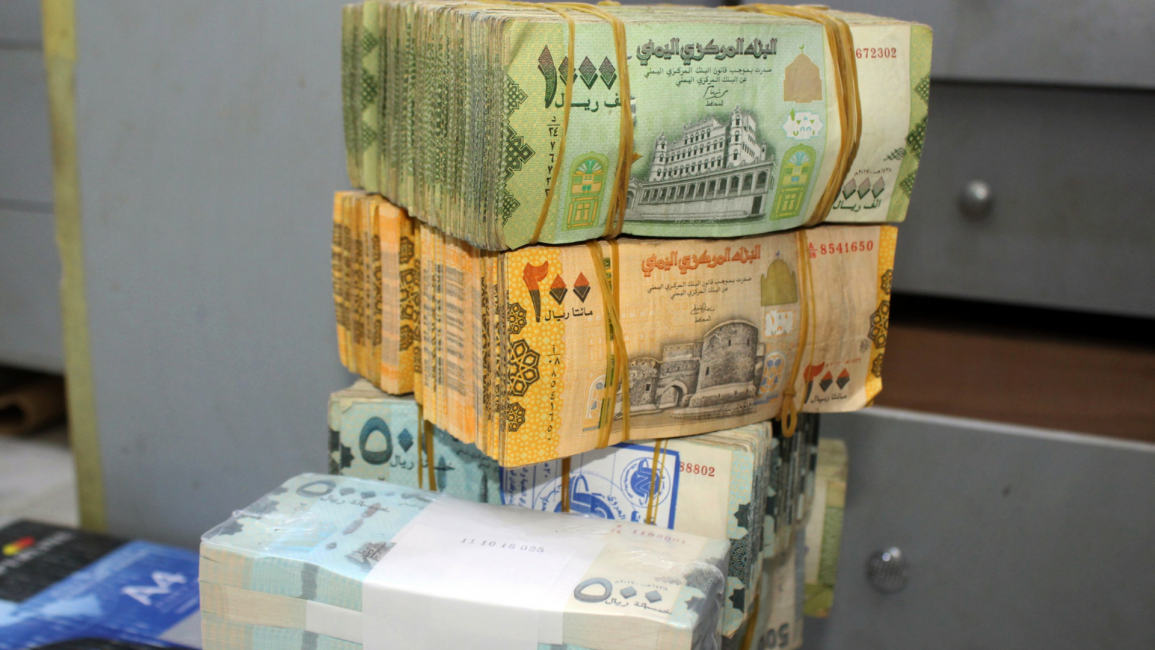Yemen establishes 'unified company' to regulate exchange markets
The new entity will monitor and regulate cash transfers by the end of November, local media reported.
The meeting between the Central Bank officials and local companies agreed on "procedures to establish a new company that would work on designing a unified network owned by licensed exchange companies, as an alternative to the previous local money transfer networks", a statement said, according to loval Al-Ayyam.
The move is a response to recent imbalances in banking activity in Yemen that caused the collapse of the local currency, which most recently saw the price of $1 exceeding 800 Yemeni riyals, compared to the previous 250 riyal rate.
Since the start of a Saudi-led military campaign against Houthi rebels in March 2015, the riyal has lost more than two-thirds of its value with the UN confirming that the exchange rate is at "crisis levels".
The Yemeni currency nose-dived despite Saudi Arabia depositing billions into the government-run Central Bank, which moved to Aden in 2016 after President Abedrabbo Mansour Hadi announced the southern city as his administration's temporary capital.
The slide in the value of the currency sparked soaring food prices that mean few people can afford to eat. It has also led to fuel prices skyrocketing, making water and transport costs even higher.
The country, with a population of around 29 million, is living through what the UN has described as the "largest humanitarian crisis in the world".
Aid to hundreds of health centres has been cut and some humanitarian programmes reduced or shut down, as the UN struggles for financial support.
Read also: Yemen in Focus: Abducted prisoners awaiting release are dying in Houthi detention
The World Food Programme has said it urgently needs over $500 million "to ensure uninterrupted food assistance until March 2021".
Yemen is divided between Houthi rebels in the north and an internationally-recognised government in the south. Both sides have been at war since the Houthis swept across much of the north and seized the capital of Sanaa late in 2014, forcing the government of President Abedrabbo Mansour Hadi into exile.
In March 2015, Saudi Arabia and other Gulf states formed a coalition to take on the Houthis in what they said was an effort to stop Iran’s growing sway in Yemen, which is at the southern corner of the Arabian Peninsula overlooking the Red Sea and the Arabian Sea.
The conflict has killed more than 100,000 people and created the world’s worst humanitarian disaster, with more than 3 million people internally displaced and two-thirds of the population relying on food aid for survival.
Follow us on Facebook, Twitter and Instagram to stay connected

![Thousands gather in front of the Cannon House Office Building and the US Capitol to demand the US pressure Israel on a ceasefire in its conflict with Gaza. [Brooke Anderson/The New Arab]](/sites/default/files/styles/image_330x185/public/2023-10/393387495_710301464290105_8375393679399060035_n.jpg?h=ff8c3fa3&itok=WdtyAWP_)

